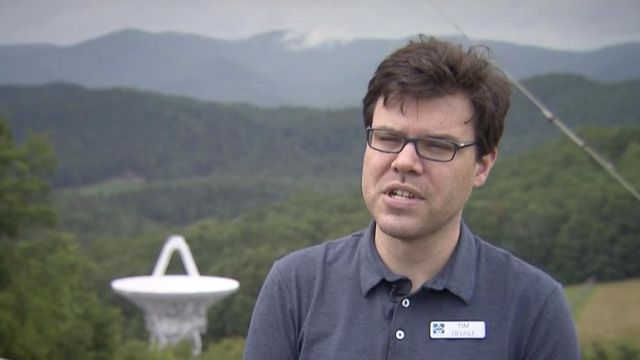'This is going to be really special': Radio telescopes give unique view of solar eclipse
The nonprofit Pisgah Astronomical Research Institute (PARI) is about to become ground zero for the upcoming solar eclipse.
Posted — UpdatedPARI once served as a NASA tracking station, keeping tabs on the Gemini and Apollo space programs, and then became part of the nation’s defense system during the cold war.
The lab, tucked away in the wrinkles of the Smokey Mountains, has something unique to offer for the Great Eclipse.
“There have been many optical telescopes that have looked at the sun during a solar eclipse, but radio telescopes like these have never been used before,” said Timothy Delisle, manager of software engineering at PARI.
Scientists have been unable to use the radio telescopes, which are more than 9 stories tall, to study a total eclipse until this month, when the shadow of the moon will pass directly overhead.
“It’s been exciting since the first meeting we sat down and had about it. We were like ‘Hey, wait a second, this is going to be really special. This has never been done before,’” Delisle said.
Five radio telescopes will all be pointed at the eclipse.
“We are going to be using all of our radio telescopes because they are all going to give us different portions of the sun,” Delisle said.
“Some of them will give us just different portions of the sun, some of them will give us just a piece of the sun, some will give us the whole disk of the sun and some will give the sun and the region around it.”
On Aug. 21, the control room will be filled with scientists and technicians.
“There are a lot of people who have a lot of ideas about what we might find, but basically what we are hoping to discover is more information about the hydrogen in the atmosphere of the sun,” Delisle said. “It’s going to be ground-breaking research. Hopefully, we can share with the world something that we’ve never known about before.”
The research will take place rain or shine, since the radio telescopes can gather data through cloud cover.
Although the celestial event will have no biological effect on humans, Delisle believes the species isn’t immune to the power of darkness.
“When you let your mind and your imagination take over, then I think it can have a really strong effect on people. It can be a very inspirational event,” he said. “I think it can change the way people look at the world and their place in it.”
The eclipse viewing event at PARI is sold out, but the institute is open to the public throughout the year for a $6 fee.
• Credits
Copyright 2024 by Capitol Broadcasting Company. All rights reserved. This material may not be published, broadcast, rewritten or redistributed.






